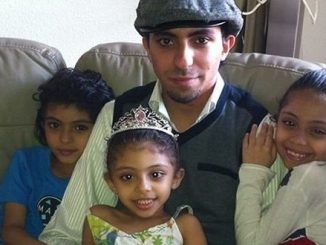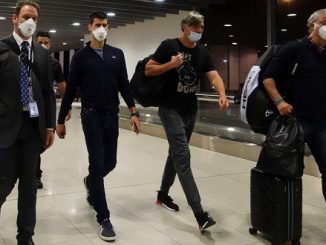
The truck driver behind a 2018 fatal crash with a bus carrying a junior ice hockey team has been ordered deported from Canada.
Jaskirat Singh Sidhu, who is originally from India, was released on full parole last year after being sentenced to eight years in prison for dangerous driving.
Sixteen people were killed and 13 injured when the truck collided with the hockey team bus on a rural road in Saskatchewan.
Sidhu’s lawyer told the BBC that he plans to fight the deportation order.
Lawyer Michael Greene said the order, which came on Friday morning at an Immigration and Refugee Board hearing in Calgary, was not a surprise as Sidhu is not a citizen of Canada.
Sidhu grew up on a farm in India and moved to Canada in 2013.
“He is a permanent resident who has been convicted of a serious offence,” Mr Greene said.
But he said he will fight to keep Sidhu in Canada on humanitarian and compassionate grounds.
“He couldn’t be more remorseful,” the lawyer said. “He is still plagued by this every day of his life.”
Ten players on the Humboldt Broncos ice hockey team, aged between 16 and 21, died when their team bus collided with the semi-trailer that Sidhu was driving.
Support staff and the team’s head and assistant coaches were also among those killed.
A number of players survived the crash but were left with life-altering injuries.
In 2019, Sidhu pleaded guilty to 16 counts of dangerous operation of a motor vehicle causing death and 13 of causing injury.
It was found that he had ran through a stop sign before colliding with the bus.
Some families of the victims have called for Sidhu to be deported.
In a statement to CTV News in Calgary on Friday, Toby Boulet, whose son Logan died in the crash, said he and his wife were “thankful for the decision” to deport Sidhu.
Others, however, have said that they have forgiven Sidhu.
Ryan Straschenitzki, one of the hockey players who survived the crash, told CTV News on Friday that he holds “no negative emotions” towards Sidhu.
“It’s kind of out of my hands, it’s not really my responsibility, but obviously you want the best for someone, and the best for a human,” he said.
Mr Greene said that Sidhu’s application on humanitarian and compassionate grounds will center on him being able to remain in Canada with his wife and one-year-old son, both Canadian citizens.
If Sidhu were to be deported, his wife and son likely would not be able to follow him to India because the child requires intensive medical treatment for severe heart and lung issues.
It could take two to three years before Sidhu gets a final decision on his appeal and it is unclear whether he will be able to stay in Canada while the application is heard.
“It depends how aggressive the (Canadian) government wants to be about removing him or whether they want to let him stay while this plays out,” Mr Greene said.






Be the first to comment